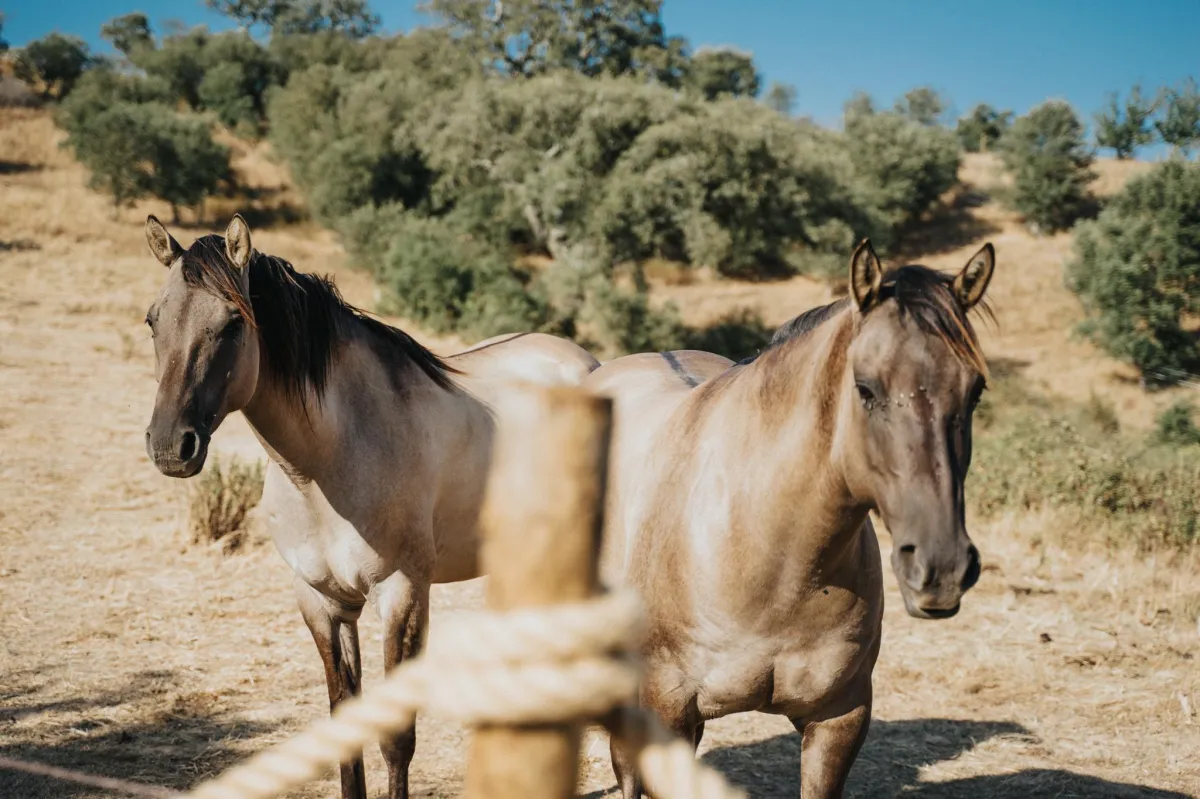
The Weight of “Doing” and the Freedom of Simply Being
“Sometimes, the most important thing you can do is stop trying to make something happen.” - Unknown
For a long time, I carried an invisible pressure, the kind that seeps into you so slowly you almost don’t notice it’s there. But it can get so uncomfortable that it causes a sense of nauseousness.
Every time someone asked,“So, what are you doing with your horses these days?” I felt a pang of guilt. I’d smile and say something like, “Oh, not much right now — I just don’t have the time,” or “I’ll start training them again soon.” And even finding reasons to justify my 'not-doing-muchness'.
But the truth was… I just didn’t want to.
And every time I entered the arena (deciding it was time to do something productive) and watched the stressed riders practicing with their horses, getting frustrated for it not being good enough, I would quietly turn around and guide my horse right outside again.
Somewhere deep inside, I knew that what my horses and I needed wasn’t more doing. We needed space. Quiet. A breath of air without expectations.
Still, I felt the weight of the world around me whispering that I should be doing something: riding, training, achieving, progressing. Anything but “nothing.”
And with every small excuse, I was abandoning a part of myself and, in a way, abandoning my horses too.
When I moved to Portugal, I think part of me was running away from that pressure. I found myself in the hills, surrounded by silence and open land. Just me and my herd, on nearly a hundred hectares of wild space.
No arenas. No eyes watching. No one to tell me what I should be doing.
For a while, I disappeared from the horse world completely. It felt like I needed to go into hiding to hear my own voice again. To rediscover what this relationship with my horses truly meant to me.
And something magical happened in that quiet.
By simply being there with them, I began to see again. I started to notice their patterns, how they would move through the land like a living rhythm, grazing in one area for some hours, then moving on to the next area following the same pattern for weeks. And then completely change the whole pattern every 6 or so weeks. I followed them, watched where they rested, drank, played, and sought shade.
I began to observe their relationships, how they interacted and negotiated space and I realised that it wasn’t as simple as a hierarchy or a “pecking order.” Leadership moved fluidly, changing with the situation and the needs of the group. It was subtle, relational, alive.
And in watching them, I began to learn again.
When I discovered the language of stress and calming signals, the tiny flickers of communication we so often miss, it opened a whole new world for me.
I’d had my horses for almost twenty years, and yet I was only now truly starting to know them.

Eventually, people began to find me, often through word of mouth. They’d ask if they could put their horse with mine, and sometimes if it felt fitting, I’d agree. What followed was rarely just about horse care; it became about connection, patience, and presence.
Every now and then, “horse people” would visit: trainers, riders, well-meaning friends. Almost by habit, they’d say,
“Maybe we could train your horses together?”
Instead, I’d smile and suggest,
“How about we just sit with them for a while first?”
And so we did.
Time and time again, I watched them soften. Their breath deepened. Their shoulders dropped. And then they’d say, almost in surprise,“I never realised how calm it could feel to just sit here.”
Many admitted they’d always felt pressure and tension around their horse, that being together was always about doing something, achieving something.
And it had never occurred to them that simply being could be enough.
In that stillness, something shifted not just in them, but in their horses too.
That’s when I began to understand what my work really was: not teaching new techniques, but guiding people back to what they already know deep inside:
That connection doesn’t come from doing more. It comes from being present enough to feel what’s already there.
Because when we abandon ourselves, when we ignore what feels true in favour of what looks right, our horses feel it too.
And when we return to stillness, they meet us there.
♡
A Gentle Question for You
Do you ever feel this pressure, that you should be doing something with your horse?
Do you ever catch yourself feeling guilty for simply sitting, or for letting things unfold slowly?
If so, maybe this week, you can give yourself and your horse permission to do less.
To breathe.
To simply be together.
Because sometimes, doing nothing is where everything begins.
